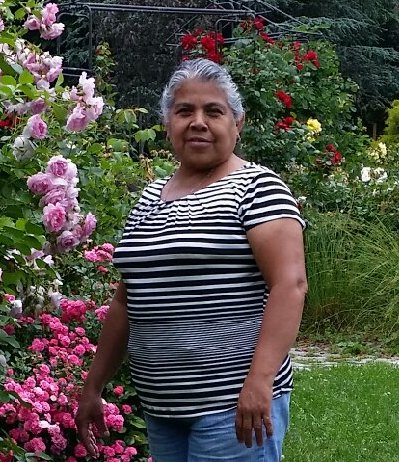NYCLU on Violent Crackdown of Pro-Palestine Protests at Columbia and City College
Civil Liberties Union
The New York Civil Liberties Union today filed a class-action lawsuit to allow family members to visit the graves of their loved ones buried in New York City’s potter’s field, Hart Island – the final resting place for some 1 million people and the largest mass grave in the United States. Current restrictive policies by the Department of Corrections (DOC), which uses prison labor to bury poor or unknown people and oversees all operations on the island, bar people from visiting the graves of their loved ones.

Current restrictive policies by the Department of Corrections (DOC), which uses prison labor to bury poor or unknown people and oversees all operations on the island, bar people from visiting the graves of their loved ones.
“By preventing people from visiting the graves of their loved ones, the Department of Corrections is robbing people of the basic right to mourn and express their grief in the way they want,” said NYCLU Associate Legal Director Christopher Dunn, lead counsel on the case. “No city agency should force families to resign themselves to never seeing their loved ones again. There is no excuse for anyone to suffer like that just to visit a cemetery.”
Plaintiff Rosaria Cortes Lusero’s stillborn daughter was buried on Hart Island in 1995 after a doctor’s botched attempt to reposition the baby in her mother’s womb instead resulted in the umbilical cord wrapping around the child’s neck.
After Cortes Lucero underwent the trauma of delivering a baby she knew to be dead, hospital staff told her that the city would bury her daughter on an island and that she would be able to visit the grave. She was given no further information on where exactly her daughter would be buried or how she could visit her grave.
“I had the hospital staff take a photo of my dead daughter, one that I keep with me to this day, with the understanding that I would be able to pay proper respects upon her burial,” Cortes Lusero said. “To this day it pains me deeply that I have been unable to honor the baby girl I never got to raise.”
It wasn’t until June 2013 when Cortes Lusero’s adult daughter, plaintiff Marie Garcia, began investigating online that they finally learned of the baby’s final resting place on Hart Island. At the same time, Garcia learned that the DOC would not allow her or her mother to visit the island nor the actual gravesite.
“It is unbelievable to me that the city would stand in the way of me visiting the grave of the sister I never had the opportunity to meet,” Garcia said. “I tried to go through the department, but nothing worked. I was left with no answers and no place to go until the NYCLU stepped in—I am so grateful for their help.”
New York City’s policy prohibiting gravesite visitation goes against a long and deeply rooted historical tradition in the United States and nations around the world to allow family members to honor the dead as they see fit, including through gravesite visitation. The policy also prevents the free exercise of religion for those who hold visiting gravesites as a critical component and tenet of faith.
Cortes Lusero, who is a lifelong Roman Catholic, wants to exercise her religious beliefs by visiting the grave and holding a memorial service with her family and a priest.
Plaintiff Michelle Catherine Caner wishes to visit the Hart Island gravesite of her father, an aerospace engineer who became estranged from his family and friends after struggles with substance abuse. He was buried on Hart Island after dying homeless and alone four years ago. Caner was unable to say goodbye to him during his lifetime but wants to reconnect with him in his death. But she believes any attempt to visit the island would be meaningless unless she is permitted to visit her father’s actual gravesite to properly mourn him.
The lawsuit maintains that the city’s policy barring Hart Island gravesite visits violates federal constitutional rights of due process and free exercise of religion and also violates similar protections under the New York Constitution. It seeks an order striking down the policy and an injunction forcing New York City to give family members reasonable visitation rights to gravesites on Hart Island.
New York University Law School Civil Rights Clinic students Clark Binkley, Daniel Kacinski and Junine So worked on the complaint with the NYCLU.